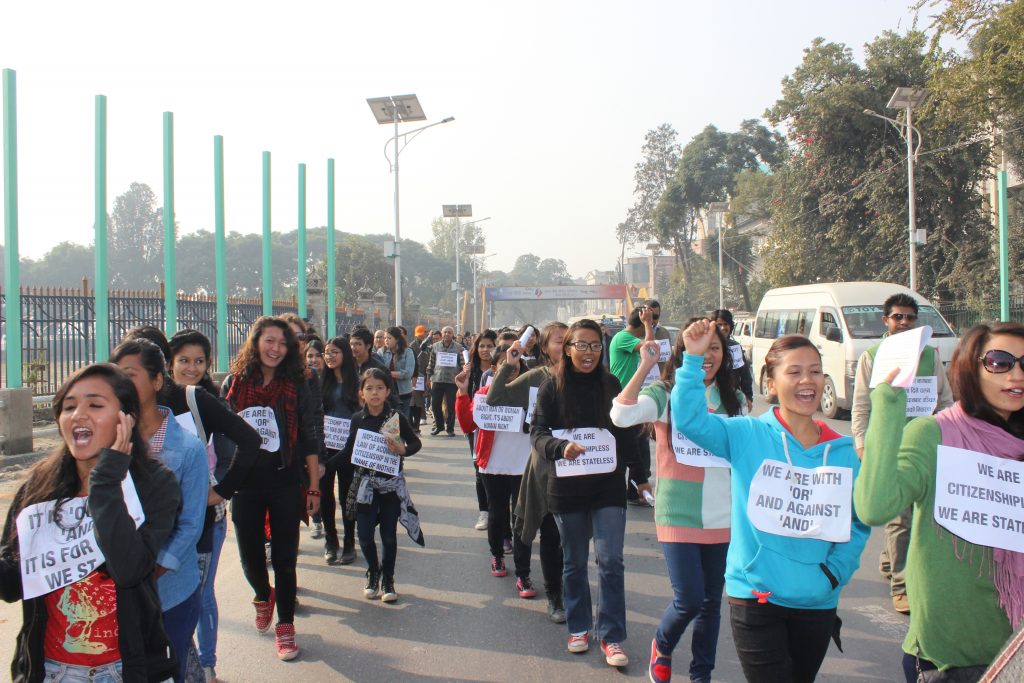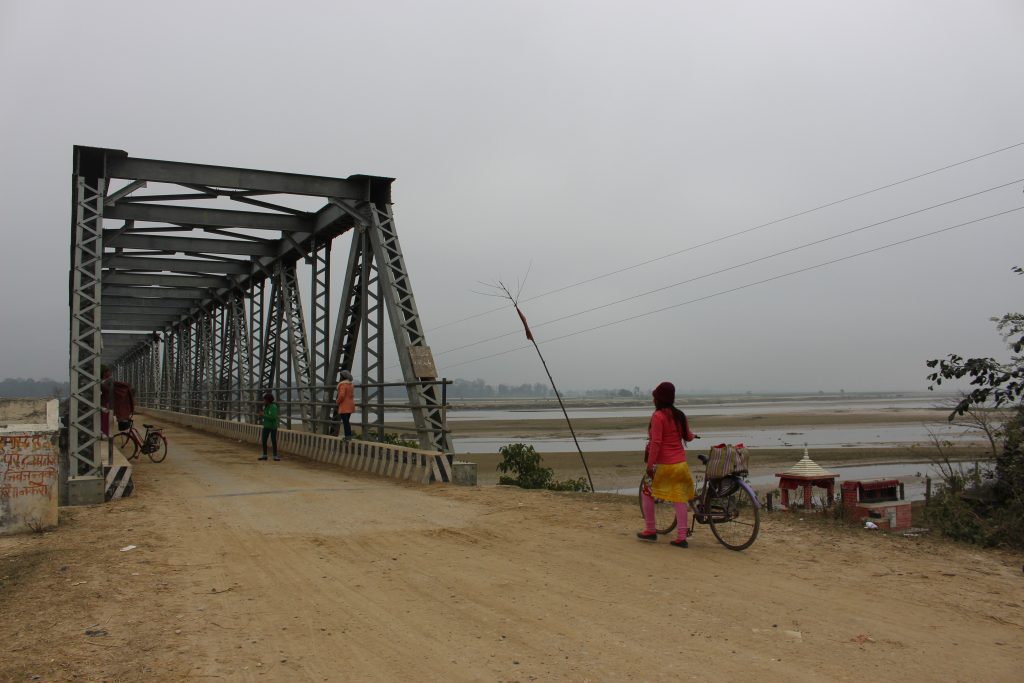Memo #326
By Sara Shneiderman – sara.shneiderman [at] ubc.ca
 It’s not often that the words “and” and “or” become political slogans, but this has happened in Nepal. A coalition of feminist and rights activists is demanding that the country’s new constitution grant citizenship on the basis of descent through “father or mother,” rather than “father and mother,” as currently proposed by Nepal’s Constituent Assembly (CA). “Or not and!” has become their battle cry.
It’s not often that the words “and” and “or” become political slogans, but this has happened in Nepal. A coalition of feminist and rights activists is demanding that the country’s new constitution grant citizenship on the basis of descent through “father or mother,” rather than “father and mother,” as currently proposed by Nepal’s Constituent Assembly (CA). “Or not and!” has become their battle cry.
These conjunctions are at the heart of a contentious public debate unfolding since 2006, when Nepal’s decade-long civil conflict between Maoist and state forces ended with a Comprehensive Peace Agreement that inaugurated “post-conflict” state restructuring. An interim constitution transformed the country from the world’s only Hindu monarchy to the secular Federal Democratic Republic of Nepal. Since then, Nepal has held two elections, resulting in two CAs, the first of which was dissolved in 2012 after it was unable to resolve the thorny issue of whether or not to delineate federal boundaries along ethnic lines. Currently, the second CA struggles on after failing to promulgate the constitution by its mid-January 2015 deadline.
The “Citizenship in the Name of the Mother” movement emerged in this context. Nepal’s Citizenship Act of 2006 granted women the right to pass citizenship to their children for the first time. Previously, citizenship could only be inherited through the male line with the result that millions of people living in Nepal were not eligible for citizenship, in cases where fathers were unknown, absent, or non-Nepali. The 2006 Act was hailed as a landmark achievement until tested in practice. When women applied for their children’s citizenship certificates, several found their Chief District Officer unwilling to implement the law. They took to the streets and to the courts, several of which have recently ruled in favor of issuing citizenship through the mother’s name.
The debate can be read in gendered terms, but broader issues are also at stake: who should be recognized as a Nepali today, and how? Those who argue for the “and” provision invoke national sovereignty in their defense. Allowing women to bestow citizenship independently, they say, would open the borders of this relatively small nation nestled between India and China to a flood of outsiders. But such views do not acknowledge the practices of cross-border mobility that have shaped Nepali lives over time, nor are they in keeping with international norms of gender equity. Nepalis are global citizens—nearly a third of the country’s working population is abroad—but many women and children find their own nation does not recognize their right to belong. A new constitution that includes the “or” provision could rectify this wrong.
About the Author:
Sara Shneiderman is Assistant Professor in Anthropology and the Institute of Asian Research at the University of British Columbia. Her forthcoming book is titled Rituals of Ethnicity: Thangmi Identities Between Nepal and India (University of Pennsylvania Press, Spring 2015), and her current research includes an ethnography of “post-conflict” state restructuring in Nepal, and an exploration of trans-Himalayan citizenship across the historical and contemporary borders of India, Tibet, China, and Nepal.

In Kathmandu, women protesters voice their opposition to “and” and march in favor of “or” (Credit: Forum for Women Law and Development, http://www.fwld.org/).

Women crossing the Rapti River bridge near Nepal’s open border with India’s state of Uttar Pradesh (Credit: Sara Shneiderman).
Links:
- Mara Malagodi, “The End of a National Monarchy: Nepal’s Recent Constitutional Transition from Hindu Kingdom to Secular Federal Republic,” Asian Affairs 11:2 (October 2011)
- Subin Mulmi, “Conjunction conundrum,” Kathmandu Post (February 2015)
- Mallika Shakya & Guillaume Gandelin, “Constituting Nepal: from Cultures to Nation?” LILA Inter-actions (January 2015)
- Gopal Sharma, “Nepali single mothers say law change would make children stateless,” Thomson Reuters Foundation (January 2015)
- Sara Shneiderman & Louise Tillin, “Restructuring States, Restructuring Ethnicity: Looking Across Disciplinary Boundaries at Federal Futures in India and Nepal,” Modern Asian Studies 49:1 (January 2015)
- Sara Shneiderman & Amanda Snellinger, “The Politics of “Post-conflict”: On the Ground in South Asia,” Cultural Anthropology (March 2014)
- Deepak Thapa, “Papers Please,” ekantipur.com (November 2014)
Related Memos:
See our other memos on Nepal and South Asia.
Comments are closed, but trackbacks and pingbacks are open.